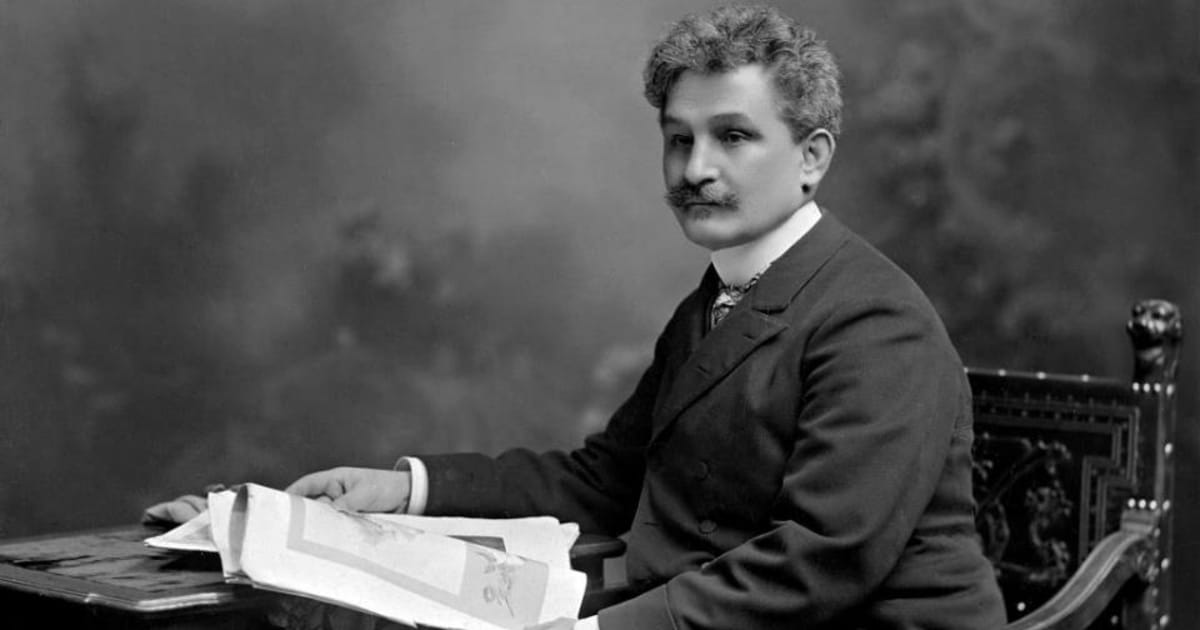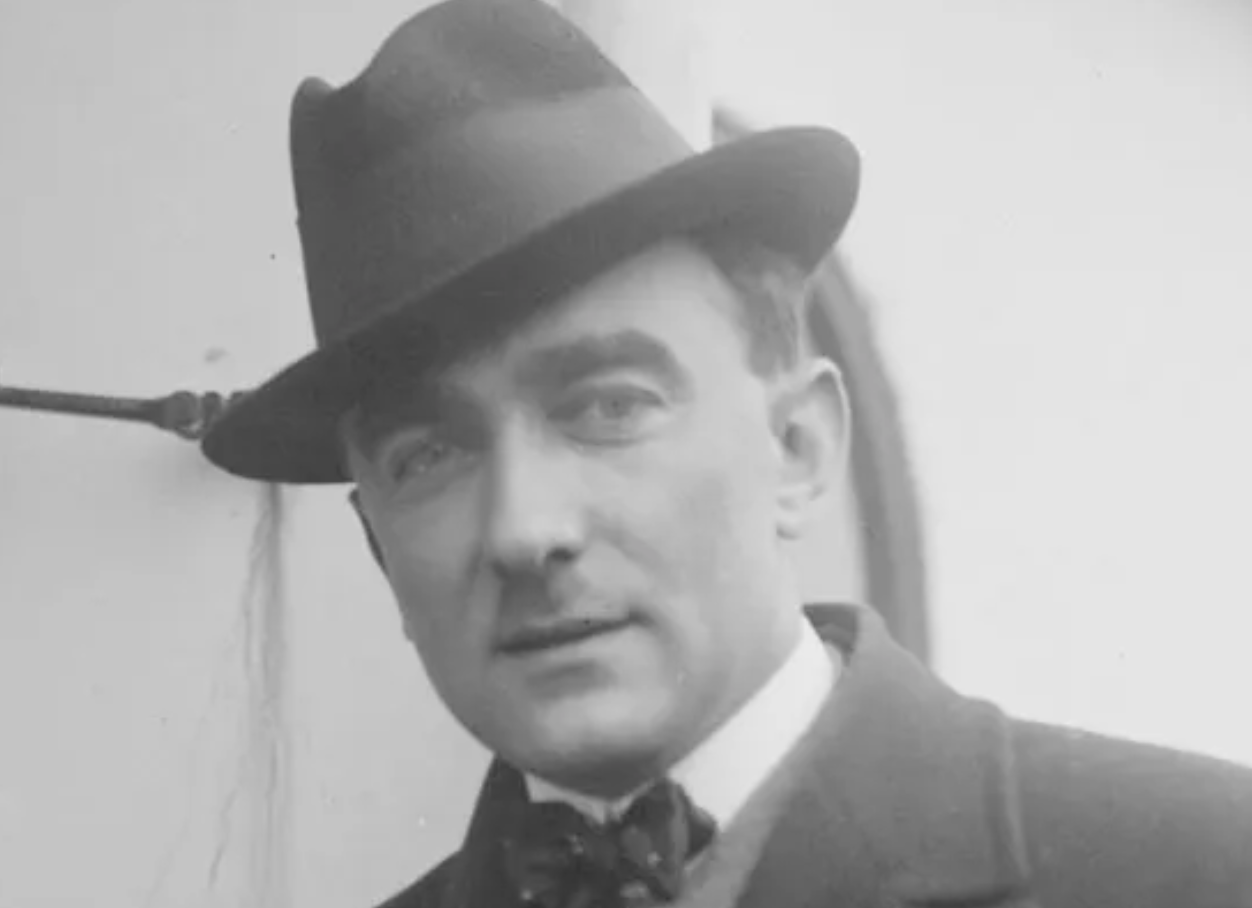On May 6th, many of you might be watching a certain seminal royal event on TV, or even standing in the streets to see the procession rolling by. We, however, will be singing the wonderful Glagolitic Mass by Janacek in the Royal Festival Hall with the LPO. 20 years after her arrival in the UK, LPC, soprano Ilona Lynch talks to us about singing in her native Czechia, joining the LPC, this wonderful piece from her home country and what it’s like to help us, her fellow LPC singers, to pronounce ‘perfect Czech’.
Girls allowed
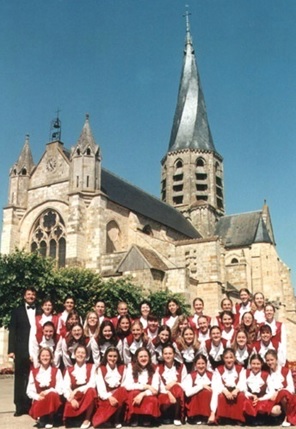
There has never been a time in my life when I haven’t been singing, and I have always had a great love for it. Growing up in Hradec Králové, one of the biggest cities in the old Czechoslovakia (now Czechia), I was fortunate enough to join a professional children’s choir, JITRO (meaning “Daybreak”), at the age of four. As a member of the choir, not only did I enjoy singing and working very closely with many of my peers, but I also acquired high discipline which I use both in my personal and professional lives. As one of the biggest disciplines, we had to rest our voices using sign language, and eat no less than two hours before each concert. The European tours we did were primarily by bus, and the tours were usually full-on, sometimes with two concerts per day. Most of our travels were in Germany, France, Switzerland and Italy, but we also visited Hong Kong and the US.
At the age of 18 I joined the Mixed Choir JITRO, the graduate choir of the Czech Children’s Choir JITRO, whose repertoire encompasses sacred music, compositions from the Middle Ages to the 21st century, music from classical and popular spheres, including modern works, arrangements of spirituals, and jazz. During this time, I went on to study at business school while working at a music instruments shop to stay close to music. Having a passion for traveling, I decided to move to England for one year after finishing my studies to learn a new language and meet new people. As I intended to return after a year, I remained a member of my old choir when I arrived in London at age 21. London’s unique opportunities however allowed me to remain and flourish professionally, as well as personally.
London calling
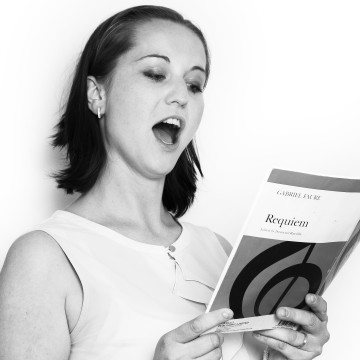
Having missed singing for so long, I started thinking about joining a choir here in London. It was only after a friend of mine took me to see a Classic Spectacular concert at the Royal Albert Hall that I decided to take the courage and start to sing again. After three years of membership in another of London’s leading choirs, I was accepted to the London Philharmonic Choir in 2007. It was a wonderful thing because the choir sing such a fantastic range and repertoire of pieces including one of my favourites, Janáček’s Glagolitic Mass for which I am thrilled to be part of this year for the third time as it marks my 15th anniversary with the choir. When I first learned we were going to be singing Glagolitic Mass eight years ago I was so excited: it’s really lively, energetic and different and has a great background.
The Glagolitic Mass, cantata for soloists, mixed choir, orchestra and organ was composed from 5 August to 15 October 1926 in Luhačovice and Brno. Janáček was 72 years old at the time, but he firmly rejected the critics who described him as a “believing old man” after the first performance of this work; In response to the Literary World, he also explains his faith: “I wanted to capture the belief in the security of the nation on the basis not religious, but on the moral, strong one…”That is why he intended the Glagolitic Mass as a gift for the jubilee celebrations of the 10th anniversary of the birth of our First Republic and for the exhibition of contemporary culture in 1928. One of the important reasons for Janáček’s interest in this theme was the strong Cyrillo-Methodian Moravian tradition. Janáček himself took part in the Velehrad church celebrations in 1869 and from his youth he also connected this tradition with his love for the Slavic nations. Another significance was the fact that Janáček had an intimate knowledge of church life from his childhood, from a simple ceremony in his native Hukvaldy, through the famous figurines to which he travelled with his father, teacher and musician, to ceremonies in the Augustinian church in Old Brno, where he was a singer from the age of 11 and later choir director and organist after his teacher Pavel Křižkovský. The text of the Mass, motivated by elements of Old Church Slavonic and often Church Slavonic, is closest to the Croatian-Glagolitic language, and Janáček probably combined it from several different models. He used it to set to music the traditional parts of the Mass-Kyrie, Gloria, Credo, Sanctus, Benedictus, Agnus. He did not set any part of the so-called “proprium missae” to music, but added an orchestral introduction of a fanfare character, an organ solo after Agnus and a final Intrada for orchestra with a solemn voice of brass and timpani.
The overall concept reveals that the composer was strongly inspired by the whole folk church environment, the arrival and departure of priests and people after Mass, the sound of the church orchestra and the improvisations of organists. For all this close formal affinity to the liturgical rite, it is a non-ecclesiastical work in its content and tone, full of worldly feelings and a wider philosophical scope. Janáček wrote in the language of the Slavic missionaries because he saw in this tradition one of the great bonds of the Slavic nations. “And high is the temple, to the heavens of the vault reaches. And the candles are burning there, they are tall fir trees and they have stars lit on top. And the bells in the temple, they have a flock of sheep. That temple is discussed in my work. I have a bit of a legend in it that when Christ on the cross was stretched out, the heavens were torn. Well, I also do lightning noise… Nightingales, thrushes, ducklings, geese, make music!” That is Janáček’s idea. The Glagolitic Mass bears the typical features of Janáček’s supreme style, as we know it from the operas The Cunning Little Vixen, Káťa Kabanová, The Makropulos Affair and the orchestral Symphony. The creative method crystallized in Jenůfa and consisting of frequent repetition of motifs, fragments and dramatic shorthand, as well as in the art of sequences with progressions, reached its peak in this work.
Slavonic spirit
This piece is closer to my heart because composer’s purpose in this Mass was patriotic; he wanted to perpetuate faith in the immutable permanence of the nation. The first time I sang this great piece with the LPC, we had a Czech language expert to help us in rehearsals and I thought that if we ever did it again, I would love to be part of the language coaching. The opportunity came in early 2020 and I was accepted to help teach the choir. Sadly, the project was put on hold due to the lockdown, but I am delighted it is now back in our repertoire to be performed on May 6th 2023, when I will have another opportunity to assist the choir with pronunciation.
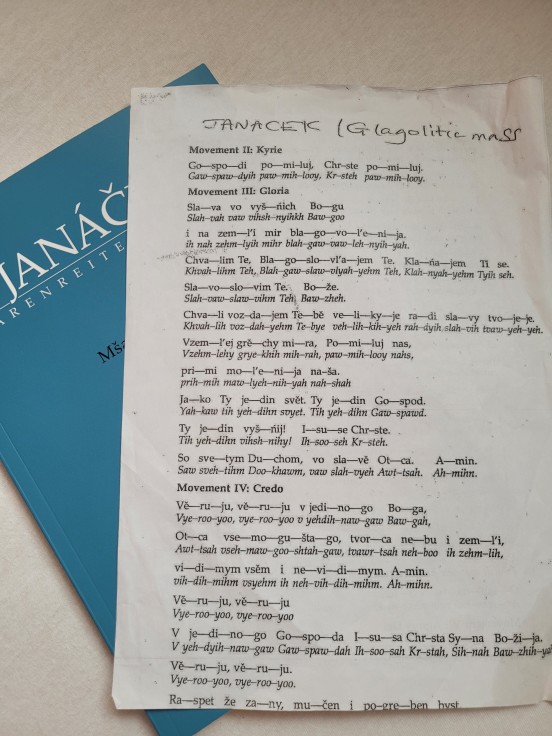
Similarly to Janáček, I am a huge patriot. Although my husband is not Czech, my daughters are bi-lingual and together we only communicate in Czech. They have been attending Czech school on Saturdays since they were little, and in recent years I have begun to teach 4/5-year-olds in the school. At the Beginning of each lesson we put emphasis on how to pronounce things and how to work with your mouth – Czech is a very active pronunciation and the tongue has to work hard in different sounds and noises – much more than English. All our syllables are at the front of the mouth and in a way, you need to constantly smile to sound the words correctly. Of course, the members of the LPC are a bit more advanced in learning than this but Czech is a new and different language for most of them and the principles of learning it are the same. A pronunciation sheet has been prepared for everyone which helps a bit but as we all know, reading things and saying them can be quite different and Czech and Slavic sounds are certainly very different to English sounds! For example – c is not like K it’s like ts, then we have an s with a hook on top (Š) which is sh; and an e with a hook (ě) depends what is in front of it so eg the word griechy would be griejcky, and ch is one syllable in Czech which sounds like ‘h’. Then z with a hook (Ž) is jzch – how do you explain how to pronounce that! You just have to show with your mouth very clearly and then let people hear and repeat what you say quite a few times! We’ll be working hard at this for the next few weeks so do come along to hear us perform this wonderful music and check out our Czech!
The Glagolitic Mass is one of the greatest works of art in world music literature, composed by Leoš Janáček towards the end of his life. He wanted to write a Mass using not Czech, not Latin but the Old Church Slavonic text. The title ‘Glagolitic Mass’ refers not to the language of the musical text but to the type of script, developed for the Slavic peoples to use in translations of liturgical texts. This dynamic work combines powerful vocal lines and a movement consisting of a virtuosic organ solo (a great opportunity to hear the impressive RFH organ in full throttle), all enclosed by thrilling opening and closing orchestral movements.
Come and hear us
Saturday 6 May 2023
7.30 pm, Royal Festival Hall
Edward Gardner conductor
Alina Ibragimova violin
Sara Jakubiak soprano
Madeleine Shaw mezzo-soprano
Toby Spence tenor
Matthew Rose bass
Catherine Edwards organ
London Philharmonic Orchestra
London Philharmonic Choir
Tippett Suite for the Birthday of Prince Charles
Mendelssohn Violin Concerto
Janáček Glagolitic Mass

